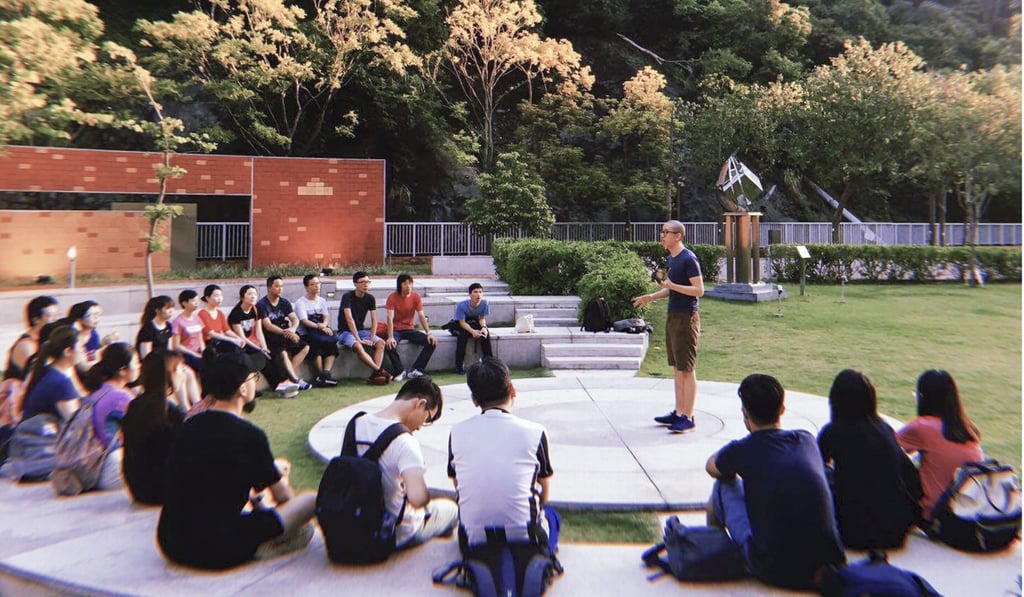MTR meditation, anyone? Hong Kong start-up offers remedy for the stresses of city life
- Treehole HK founder Peter Chan Kin-yan says he wants to empower Hongkongers with a ‘mind gym’ that will help build mental resilience
- While meditation is best done in a quiet setting, this may be a luxury for busy Hongkongers in a bustling city, Chan says

Higher education is often seen as the pathway to a successful corporate career, but fresh graduate Peter Chan Kin-yan has his sights set on a path less travelled – promoting the practice of meditation.
“In Hong Kong, results are highly valued, so it is hard to ask people to sit down and feel the flow of their thoughts. That’s why we need to get innovative,” Chan, 23, says.
He secured his degree in psychology from the University of Hong Kong last June and soon set up Treehole HK, a start-up that organises meditation workshops for companies’ staff training.
Chan says the name conjures up images of “a private space, where one can take some time to think about what he or she really wants”.

Treehole’s classes aim to help people develop concentration and communication skills. “I want to build a ‘mind gym’, a place for everyone to take mental strength training,” he says.